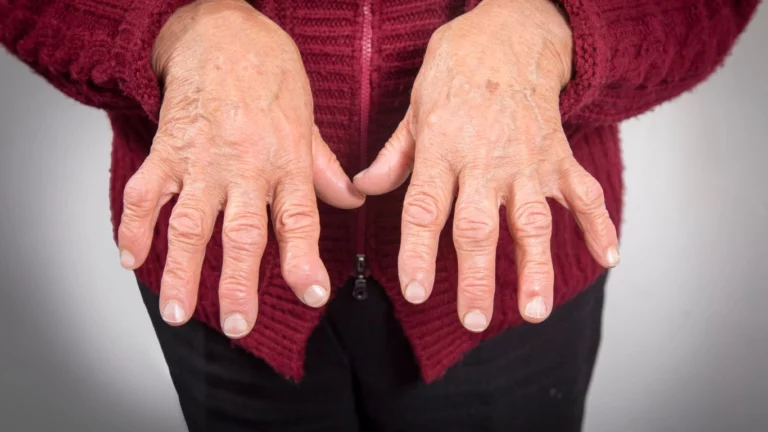Discover the Best Herbal Teas for Clearing Airways Naturally and Effectively
If you’ve ever found yourself wheezing, coughing, or feeling like your lungs just won’t open up the way they should, you’re not alone. As a pulmonary nurse practitioner, I’ve sat across from countless patients who are looking for more than just inhalers and prescriptions—they want something natural to soothe their airways. That’s where herbal teas come in. In this post, we’re diving into the best herbal teas for clearing airways. Not just the trendy ones, but the ones I’ve seen genuinely make a difference, both in clinic and in my own cup.
Why Herbal Teas Deserve a Spot in Your Respiratory Routine

There’s something timeless about the ritual of sipping a warm cup of tea. But beyond comfort, certain herbs have powerful properties that can help support respiratory health. And no, this isn’t woo-woo wellness hype—I’m talking about compounds that relax bronchial muscles, thin mucus, and reduce inflammation.
In my years working with patients dealing with asthma, COPD, and chronic bronchitis, I’ve seen how adding a few natural allies to the mix—like herbal teas—can genuinely help manage flare-ups and support long-term lung health. Think of them as your warm, soothing backup team.
Understanding Airway Congestion: It’s Not Just a Stuffy Nose

Before we dive into the tea blends, let’s quickly talk about what’s actually going on when your airways feel “clogged.” Whether it’s from allergies, pollution, asthma, or a lingering cold, congestion is often due to:
- Inflamed airways – making it harder for air to flow freely
- Thick mucus – trapping allergens and irritants
- Muscle constriction – especially in asthma attacks
Most herbal teas that help open up your airways do so by tackling one or more of these problems. Some are expectorants (they help you cough up gunk), others are anti-inflammatory, and some actually help relax the smooth muscles in your respiratory tract. Cool, right?
Best Herbal Teas for Clearing Airways: My Go-To Remedies

1. Peppermint Tea: The Airway Opener
If you’ve ever inhaled a menthol cough drop and felt that glorious cooling sensation in your chest, you already know the magic of peppermint. Peppermint tea contains menthol, a natural decongestant and muscle relaxant. It works by soothing the throat, thinning mucus, and giving that “open-air” feeling we all crave during a flare-up.
In practice, I often suggest peppermint tea to patients dealing with cold-related coughs or seasonal allergies. It’s especially nice before bed when you want to calm nighttime coughing.
2. Ginger Tea: The Inflammation Tamer
Ginger isn’t just for nausea—it’s packed with anti-inflammatory compounds like gingerol that help reduce swelling in the airways. I’ve had a few asthma patients who swear by their morning mug of ginger tea, saying it helps them breathe easier during allergy season or post-exercise.
Pro tip: Steep fresh slices of ginger root in hot water with a little honey and lemon for a warming, immune-supportive brew.
3. Mullein Tea: The Lung Soother
This herb doesn’t get enough attention, in my opinion. Mullein is an underrated powerhouse when it comes to respiratory support. It acts as an expectorant, helping to break up mucus and making it easier to cough it out—without being overly stimulating like some synthetic options.
When I first discovered mullein, I was skeptical. But after hearing enough anecdotal success stories and trying it myself during a bout of bronchitis, I became a believer. The results were subtle but noticeable—less coughing, easier breathing, and a calmer chest overall.
4. Thyme Tea: Nature’s Cough Suppressant
Thyme is one of those pantry staples that doubles as medicine. It contains thymol, a compound with antimicrobial and antispasmodic properties. That means it can calm a hacking cough while helping clear infection-causing bacteria in the lungs.
Thyme tea is especially helpful during chest colds or early flu symptoms. I often recommend adding a bit of honey for both taste and an added throat-soothing boost.
5. Licorice Root Tea: The Moisturizing Elixir
Licorice root is like a moisturizing balm for your lungs. It coats the mucous membranes, soothes irritation, and can even help ease spasms in the bronchial tubes. Just a heads up—licorice root can interact with medications and raise blood pressure if overused, so I always tell patients to sip in moderation and check with their provider.
Personally, I reach for this one when I’m feeling run down or when dry, irritated coughing is keeping me from sleeping.
What to Look for in a Quality Herbal Tea
Not all teas are created equal. Whether you’re buying loose leaf or bagged varieties, keep these tips in mind:
- Organic whenever possible – avoid pesticides that could irritate your lungs further
- Minimal additives – skip the artificial flavors and fillers
- Proper storage – herbs lose potency if they’re exposed to too much air, light, or moisture
When patients ask me where to start, I usually recommend beginning with one or two teas based on their symptoms and rotating them as needed. Trust your body—you’ll notice which ones feel right.
Herbal Tea Combos That Pack a Punch

Sometimes, one herb just isn’t enough—especially when you’re dealing with stubborn congestion or chronic airway issues. That’s when I like to recommend blending teas for a more synergistic effect. Over the years, I’ve experimented with quite a few mixes, both at home and when guiding patients, and let me tell you, some of these combos are absolute game-changers.
Peppermint + Thyme + Licorice Root
This trio is one of my favorites when cold and flu season hits hard. Peppermint opens the airways, thyme tackles any lurking microbes, and licorice root coats and calms inflamed tissues. It’s a little sweet, a little minty, and incredibly soothing when you’re coughing your lungs out at 2 a.m.
Ginger + Mullein + Lemon
If you’re fighting off mucus buildup or recovering from a bronchial infection, this combo is gold. Ginger thins the mucus, mullein helps clear it out, and lemon brings vitamin C and a refreshing twist. Bonus points if you add a touch of raw honey for an extra immune kick.
Chamomile + Peppermint for Nighttime Relief
Don’t sleep on chamomile (pun intended). While it’s better known as a sleep aid, it also has mild anti-inflammatory effects that help calm irritated airways. Mix it with peppermint before bed to help quiet the coughs and support better breathing while you sleep.
When and How to Drink These Teas for Maximum Effect

Timing and technique matter more than you’d think. I often tell my patients, “Don’t just sip tea when you’re sick—make it a regular part of your wellness routine.” Even if you’re feeling okay, herbal teas can act as preventative care for your lungs, especially if you live in a smoggy city, have a history of asthma, or work in environments that challenge your respiratory health (I’m looking at you, firefighters and hair stylists).
- Morning: Start with ginger or peppermint to open up your lungs and wake up your system.
- Afternoon: Opt for mullein or thyme—perfect if you’re dealing with lingering mucus or a persistent cough.
- Evening: Chamomile and licorice root teas help settle inflammation and prepare your body for restful breathing overnight.
Steep time also matters. Most of these herbs should be steeped for 7–10 minutes minimum to extract their full benefits. And don’t rush—let it cool just enough so you can sip it slowly and let the steam work its magic on your sinuses too. I always tell patients, even the act of breathing in those aromatic oils while drinking tea is part of the healing process.
What Science Says About These Teas

I know some folks need more than anecdotes—and that’s totally fair. As someone grounded in evidence-based practice, I always love diving into the research. Here’s what the science has to say about the best herbal teas for clearing airways:
- Menthol in Peppermint: Studies show it acts as a natural bronchodilator, helping air move more freely through the lungs.
- Ginger Compounds: Research indicates gingerols reduce airway inflammation and oxidative stress, which is especially helpful in asthma and chronic bronchitis.
- Mullein Leaf: Preliminary studies and herbal pharmacology reviews suggest it supports mucociliary clearance (aka helps get gunk out of your lungs).
- Thymol in Thyme: Known for its antibacterial and antispasmodic properties, it’s often cited in European respiratory phytotherapy guidelines.
- Licorice Root: Contains glycyrrhizin, which has been shown to reduce inflammation and protect airway mucosa in small clinical studies—but remember, moderation is key here due to potential side effects.
Even though more large-scale clinical trials are still needed for some of these herbs, many have been used for centuries across cultures—and the emerging science is catching up to what our ancestors already knew.
What I’ve Seen Firsthand with Patients
In real-life practice, some of the most rewarding moments come when patients come back and say, “Hey, that tea you recommended? I can actually breathe better now.” Whether it’s a mom managing her kid’s allergy-induced wheezing with thyme tea, or an elderly patient who finds comfort in mullein tea between nebulizer treatments—these teas make a difference.
One patient with mild COPD started drinking a mix of ginger and licorice root daily. It wasn’t a miracle cure, but she reported fewer flare-ups and less mucus over time. Plus, it gave her something proactive she could do every day, which is a big deal when dealing with chronic illness.
And to be honest, I use these teas myself, too. Long hospital shifts can take a toll, especially when you’re constantly breathing in dry air or catching every seasonal bug from patients. A warm cup of peppermint-ginger tea is always in my locker—it’s a little ritual that helps me reset and breathe easier.
Precautions and Tips for Safe Herbal Tea Use

While herbal teas can be fantastic allies in supporting respiratory health, it’s super important to approach them thoughtfully. From my years as a pulmonary nurse practitioner, I’ve learned that “natural” doesn’t automatically mean “safe for everyone.” Here are a few key things I always tell patients:
1. Check for Allergies and Sensitivities
Even the gentlest herbs can cause reactions in some people. For example, if you have a known allergy to plants in the mint family, peppermint tea might not be the best choice. Start with small amounts when trying a new tea and watch how your body responds.
2. Consider Medication Interactions
Herbs like licorice root can interact with blood pressure meds, diuretics, or blood thinners. If you’re on prescription drugs, always chat with your healthcare provider before adding herbal teas to your routine. I can’t stress this enough—better safe than sorry.
3. Avoid Overuse
Herbal teas are best used as a supportive tool, not a replacement for prescribed treatment. Drinking a few cups a day is great, but excessive intake—especially of stronger herbs like licorice—can cause side effects like high blood pressure or electrolyte imbalance.
4. Quality Matters
Buy from reputable sources that offer organic or wildcrafted herbs, and avoid blends with unnecessary fillers or artificial flavorings. The purity of your tea can make a big difference in both safety and effectiveness.
DIY Herbal Tea Recipes for Clearing Airways

Want to try making your own blends? I’ve put together a few simple, effective recipes that you can whip up at home. Fresh or dried herbs both work—just adjust steeping time accordingly.
Refreshing Airway Opener Blend
- 1 tsp dried peppermint leaves
- 1 tsp dried thyme leaves
- 1/2 tsp dried licorice root
- Steep in 8 oz hot water for 8–10 minutes
- Add a squeeze of lemon and a teaspoon of honey if desired
Mucus-Busting Ginger & Mullein Tea
- 1 tsp fresh or dried ginger slices
- 1 tsp dried mullein leaves
- Juice of half a lemon
- Steep in hot water for 10 minutes
- Add honey to taste
Soothing Nighttime Chamomile & Peppermint
- 1 tsp dried chamomile flowers
- 1 tsp dried peppermint
- Steep in hot water for 7 minutes
- Enjoy 30 minutes before bedtime
Pro tip: Use a tea infuser or a mesh strainer to make cleanup easy and keep your teas fresh. I find that having a little tea station at home makes it easier to remember to drink these regularly.
Integrating Herbal Teas into a Lung-Friendly Lifestyle
Drinking the best herbal teas for clearing airways is a great step, but it’s only part of the equation. From my clinical experience, a holistic approach to lung health works best. This means pairing your teas with:
- Regular gentle exercise to strengthen respiratory muscles and improve lung capacity
- Good hydration to help keep mucus thin and easier to clear
- Avoiding smoke and pollutants that irritate your airways and cause inflammation
- Using a humidifier to add moisture to dry indoor air, especially in winter months
- Practicing breathing exercises like diaphragmatic or pursed-lip breathing to maximize oxygen exchange
When patients combine these strategies with herbal teas, I often see the best improvements. It’s about creating a lifestyle that supports your lungs consistently—not just during flare-ups.
References & Further Reading
- American Lung Association
- National Center for Complementary and Integrative Health
- American Gastroenterological Association (for herbal safety and interactions)
- National Heart, Lung, and Blood Institute
Disclaimer
The information provided here is for educational purposes only and is not a substitute for professional medical advice, diagnosis, or treatment. Always consult your healthcare provider before starting any new herbal regimen, especially if you have existing health conditions or are taking medications. Herbal teas can support respiratory health but should not replace prescribed treatments or emergency care.

Bianca Nala is a compassionate Nurse Practitioner with a strong background in primary and respiratory care. As a health writer for Healthusias.com, she combines her clinical expertise with a talent for clear, relatable storytelling to help readers better understand their health. Bianca focuses on topics like asthma, COPD, chronic cough, and overall lung health, aiming to simplify complex medical topics without losing accuracy. Whether she’s treating patients or writing articles, Bianca is driven by a single goal: making quality healthcare knowledge accessible to everyone.







